An American man living in France has won a groundbreaking domestic ab*se case against his ex-girlfriend. Paul Jordan took his former partner to court after she threw boiling-hot tea on him, resulting in hospitalization for severe burns.
Despite systemic hurdles stemming from the gendered nature of domestic abuse laws and resources in France, Jordan received justice when judges handed his ex a four-month suspended jail sentence and thousands of Euros in fines and restitution.
Speaking exclusively to Bored Panda, the chemist and researcher highlighted the obstacles men face in domestic abuse situations and gave advice to future victims.
Paul Jordan was scalded by his ex-girlfriend while they were living together in France
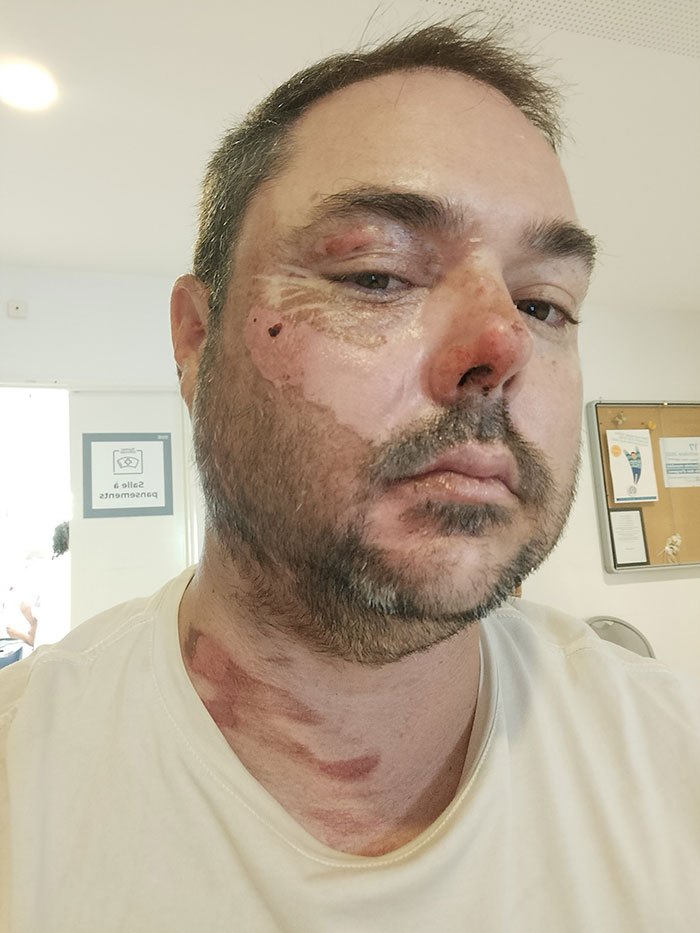
In August 2023, Paul Jordan was living in Mirabeau with his partner and her 11-year-old son while he worked at ITER, a massive international research facility devoted to nuclear fusion technology.
After breaking up, they agreed to have a discussion the next day about moving forward, specifically regarding rent since they were sharing the residence.
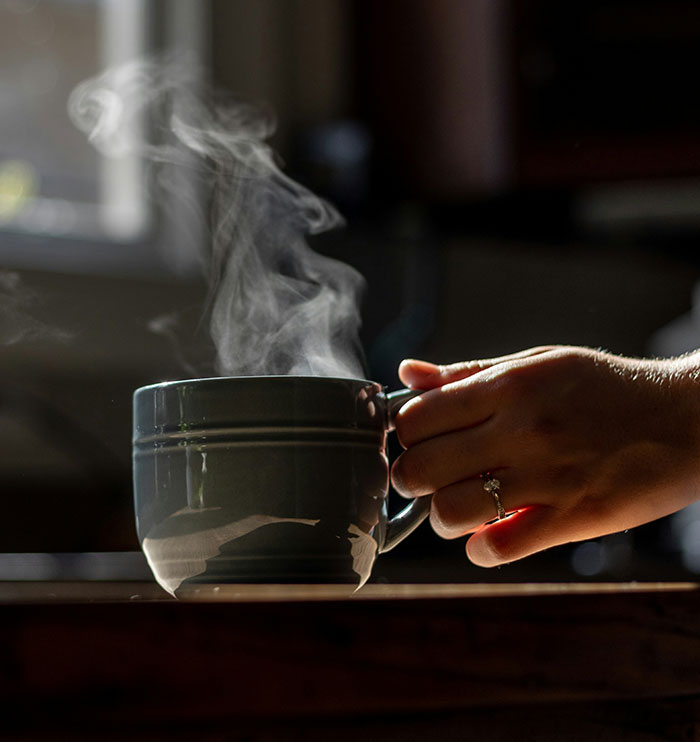
The discussion grew heated after Paul suggested his ex pay her half of the rent, which he claims she had previously agreed to. He extracted himself from the situation by retreating to his office, but as he went to shut the door, she threw her cup of freshly brewed tea at his head.
The scalding water also splashed down onto his chest, resulting in second degree burns across eight percent of his body, including his face.
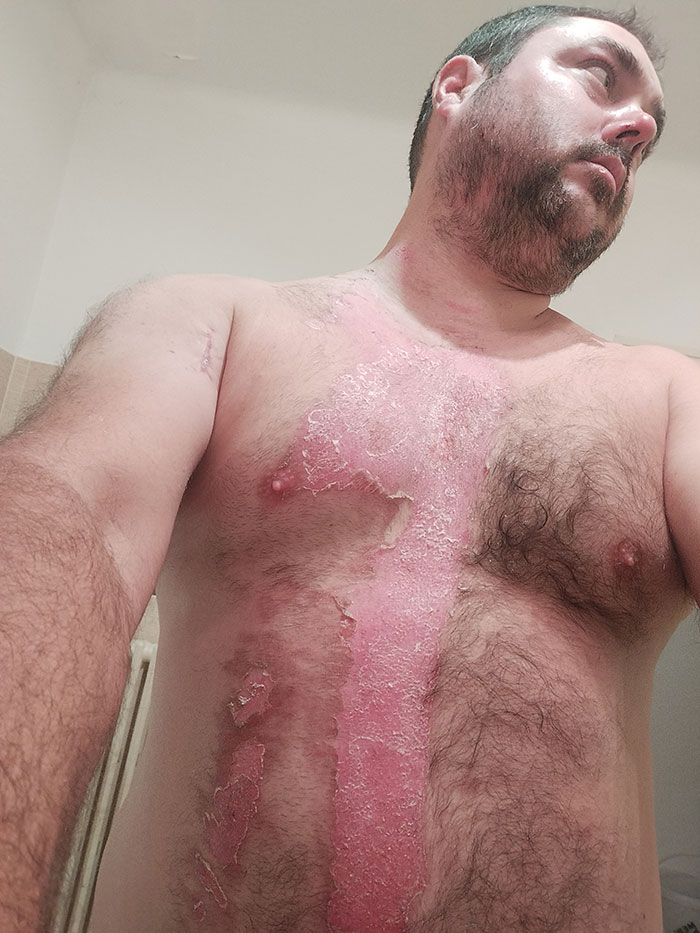
In the hospital, covered in bandages for his burns, the American scientist faced a dilemma. Should he go to the police?
For any survivor of domestic abuse, approaching the authorities can seem daunting, but for a man, things can be especially complicated. He was acutely aware that many male survivors are not only disbelieved, but they face a gendered system that automatically classifies men as perpetrators and women as victims.
“If I call the police now, she will continue the lie,” Paul explained, revealing his thoughts at the time. “Her French is better than mine, she could convince them I hit her first or even involve her son, I don’t know what she is capable of.”
After the attack, Paul faced a journey of systemic obstacles in his quest for justice
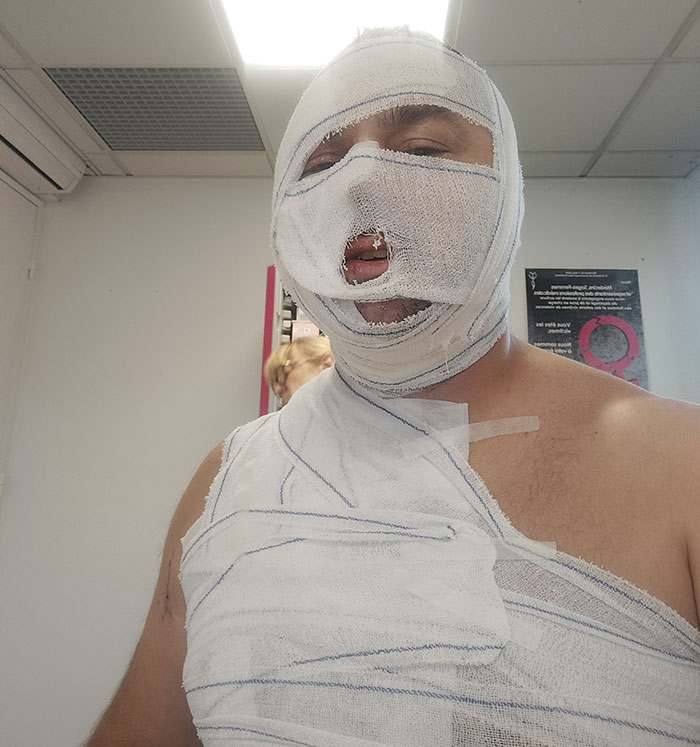
These fears are common. A study in The Journal of Interpersonal Violence found that male victims were reluctant to go to the authorities “due to the negative expectations of being ridiculed by the police, not being believed, and fear of being arrested.”
Those who did “reported unfriendly and antagonistic police treatment and the police’s reluctance to charge abusive female partners.”
This continued through the legal process with “legal and administrative abuse by female partners, including false accusations and manipulations of child custody, and a general bias against men in the courtroom.”
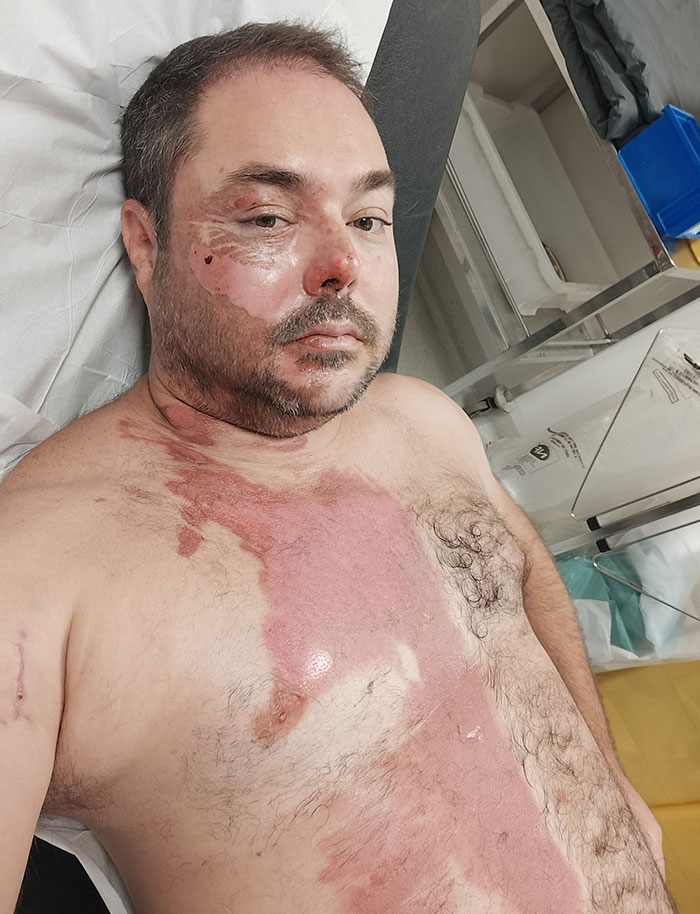
Paul had a similar experience. The officers were notably confused when he made his report. They seemed uncertain of the proper procedure, and when he was provided a state-appointed social worker, she confided that they “literally didn’t know what to do with a male victim.”
When he finally went to trial, his translator had problems at first because she assumed he was the perpetrator rather than the victim.
The Texas native’s problems were compounded by the French legal system. Instead of a public prosecutor handling his case, he was forced to pay out-of-pocket for his own attorney to bring charges against his ex.
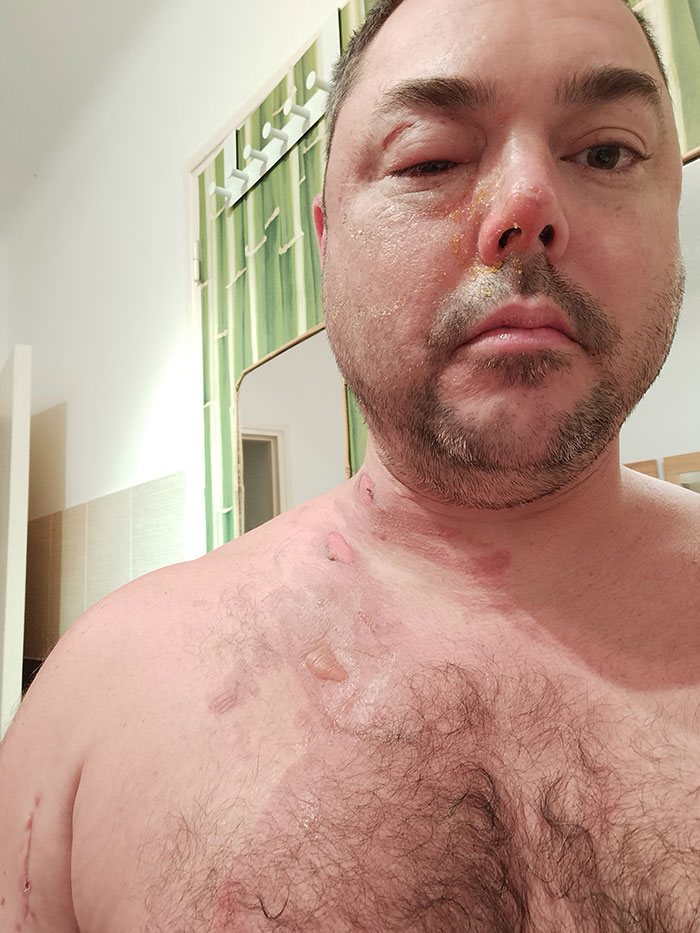
In the meantime, social stereotypes and biases against men wreaked havoc on his personal life.
Generally, police require the man to leave the residence when there are pending domestic violence charges, but no such procedure exists when the alleged aggressor is a woman.
On top of that, Paul’s ex sent a defamatory letter to his landlord alleging he was living in the residence illegally. As a result, he had to justify himself to the police by providing the lease and explaining he had not signed the letter in question.
Paul fought for two years with little social or institutional support
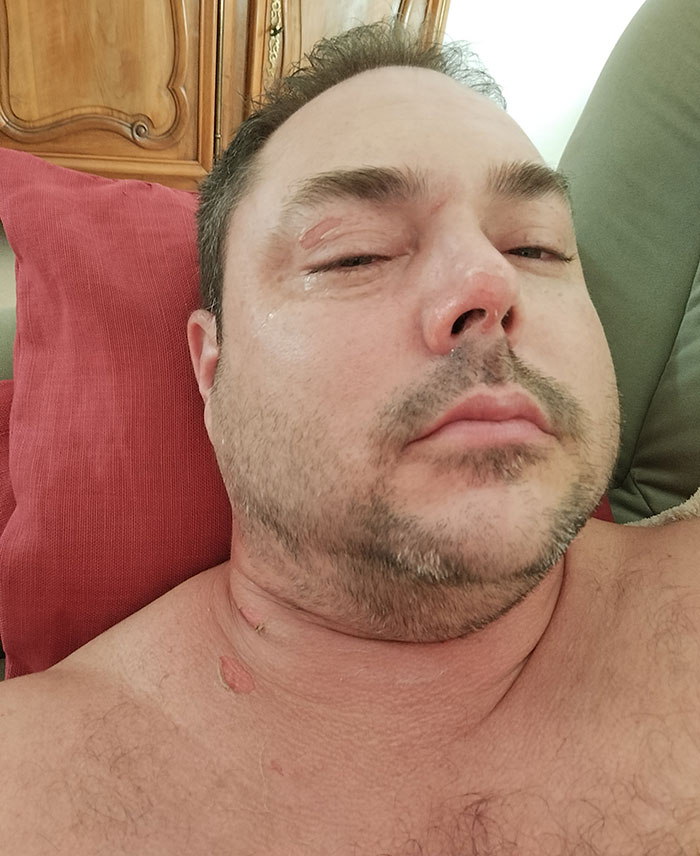
Nevertheless, after well over a year, roughly the same amount of time it took for his burns to heal, judges dismissed his ex’s conflicting stories.
They found her guilty of “violence followed by incapacity of more than 8 days by a person who is or has been the spouse, cohabitant or partner of the victim by a civil solidarity pact.” In other words, serious domestic violence.
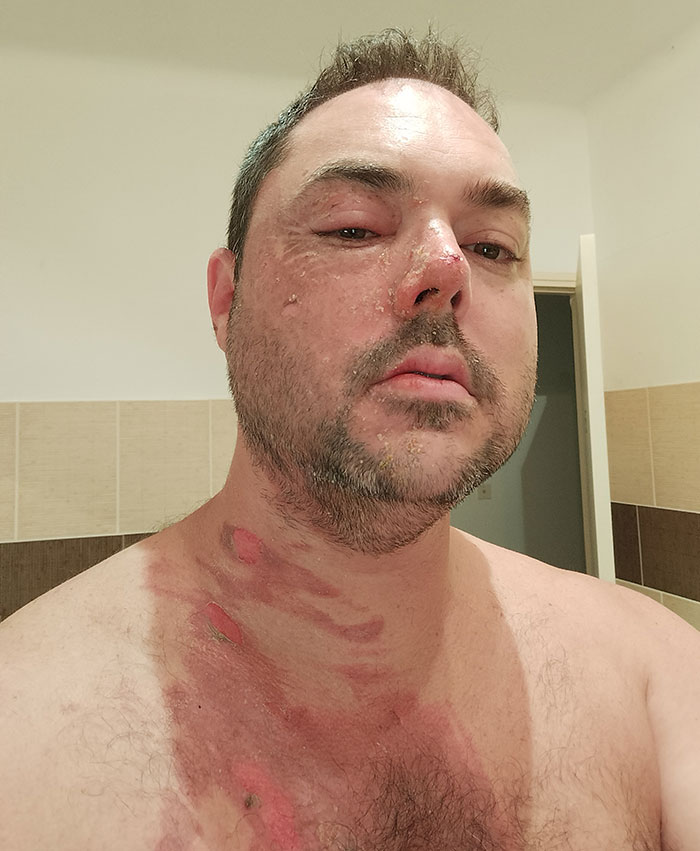
Awareness of domestic violence against men has increased in recent years, in part thanks to high-profile cases like the Johnny Depp-Amber Heard trial and documentaries such as Netflix’s My Wife My Abuser, which documented a husband’s 20 years of abuse via hidden camera footage.
However, advocacy and discussion of the issue remain shrouded in controversy, and those who speak out are often confronted with backlash and retaliation.
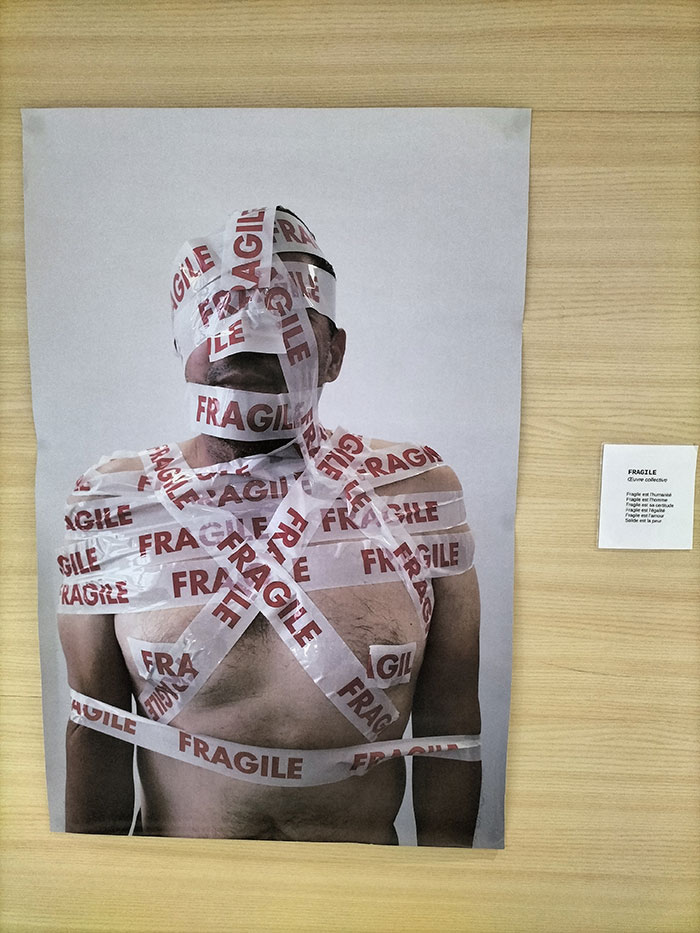
For example, an Australian academic, Dr. Fiona Girkin, recently made headlines after she seemingly agreed with the idea that women often instigate violence in domestic situations.
She claimed that in her work with the Tasmania Police “they’re seeing just as many women as they are men in domestic violence situations as the perpetrator.”
As a result of her statements, she was placed under investigation by the University of Tasmania and suspended from teaching police recruits.
Domestic violence against men remains a taboo subject
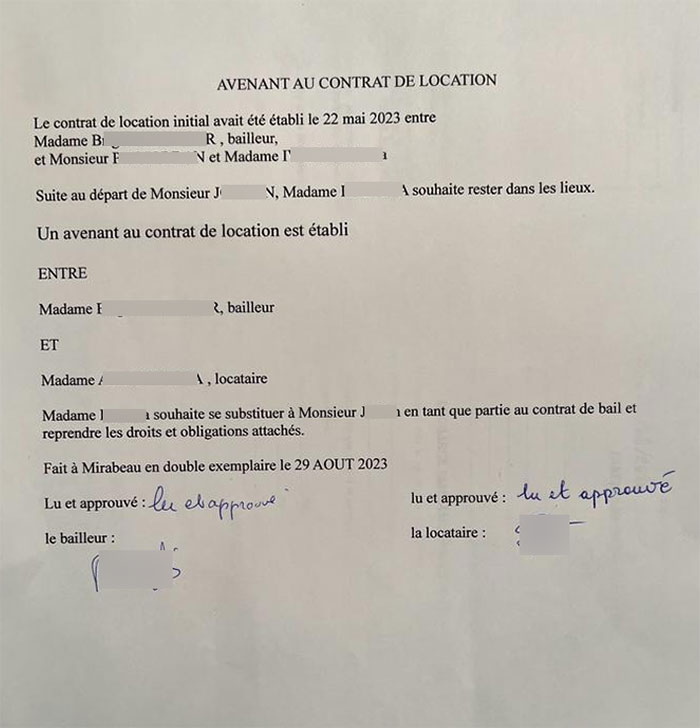
This combative climate makes it all the more difficult for male victims to come forward and to be believed if they do, which skews statistics and makes it more likely that survivors like Paul suffer alone without support and without justice. This is why he wants his story to be told.
“Even if just one man reads my story and sees there’s hope,” he said. “It’s worth it. ”

Paul’s story shows that even if there are obstacles, male victims of domestic violence are not without hope.
To help your case, he recommends documenting as much evidence as possible. While he did not catch the incident on video, which he confided would have been ideal, he did take extensive photos of his burns and kept medical records.
His ex-girlfriend changed her explanation for his injuries multiple times, including claiming that he burned himself with acid. The inconsistency and implausibility lent themselves to his case since he had hard evidence.
Nevertheless, he says you should have no illusions about the uphill battle you’re facing.
High-profile cases like the Johnny Depp-Amber Heard trial has increased awareness of domestic violence against men
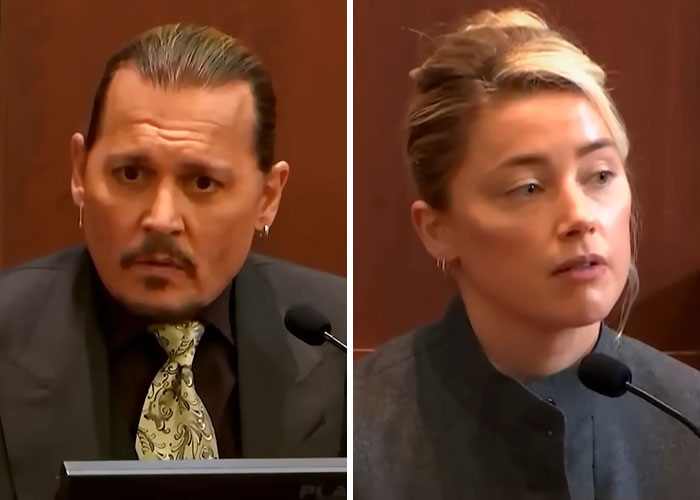
“Prepare to spend lots of money as well as any and all social capital you have, and prepare to not be believed and be questioned at every step of the process,” he said.
“Prepare for friends and family to abandon you because a violent woman is the ultimate taboo and no one wants to even be adjacent to such horrific drama.”
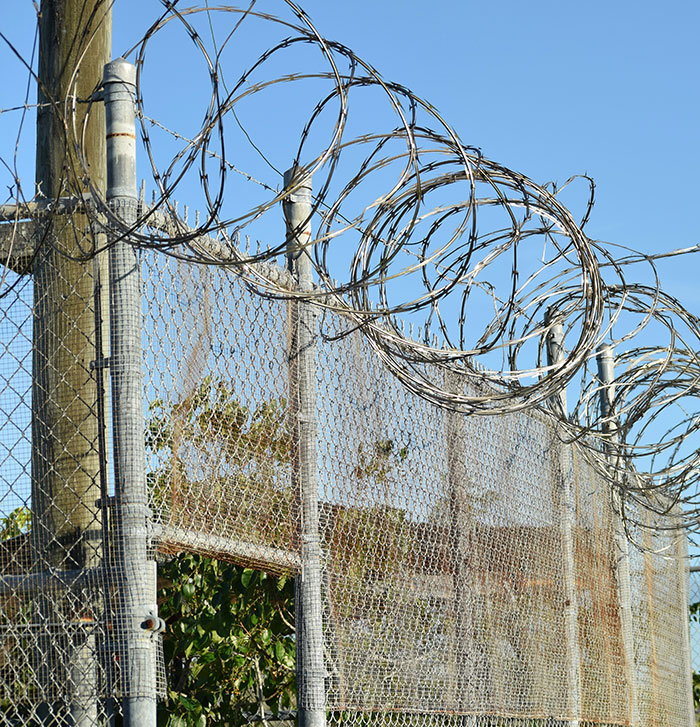
Because the legal framework is so complex and specifically focused on female victims in most countries, it’s advisable to consult an attorney to discuss the best course of action for your situation.
Men in domestic violence situations have options
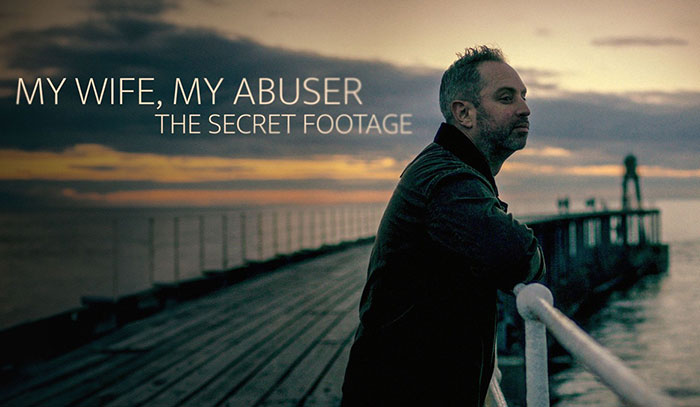
The UK is one of few countries with male-specific helplines. The organization Respect operates the Men’s Advice Line for male victims of domestic abuse.
The ManKind Initiative is another organization specifically devoted to “helping men escape domestic abuse.” You can call their helpline at 01823 334 244.
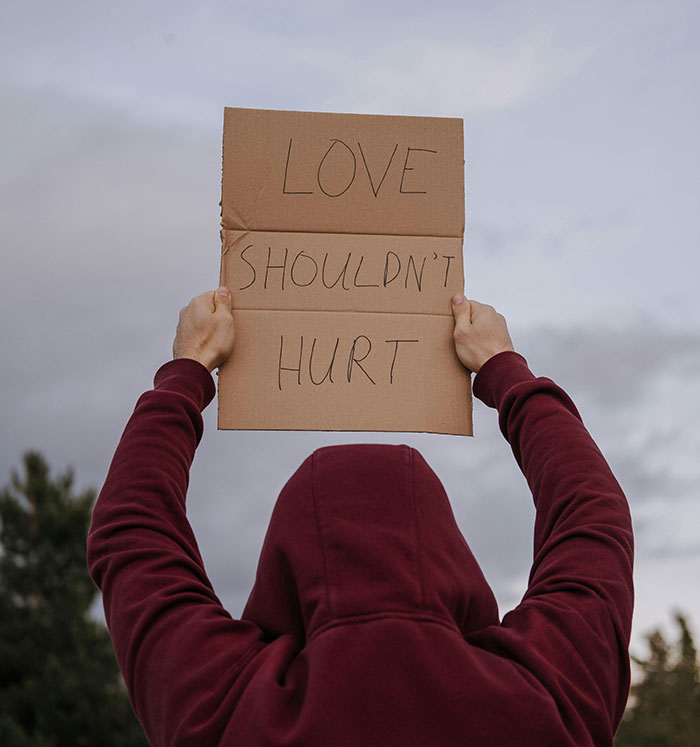
The United States does not have resources specifically for men, but you can call the National Domestic Violence Hotline at 1-800-799-SAFE (7233) or use the online chat at thehotline.org.







